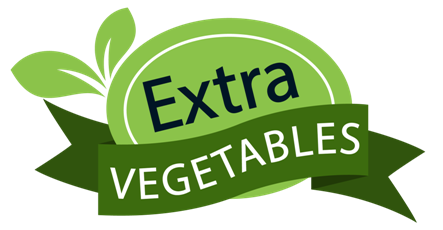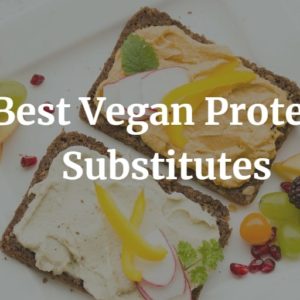
When eating a plant-based diet, it’s important to factor in additional protein sources. Contrary to what some people may think, protein isn’t only available in animal-based products; there are plenty of vegan-friendly substitutes that you can add in that will give you all the nutrients that you need to stay healthy.
In this article, we’ll be taking a look at the best protein sources for vegans, as well as the reasons why protein is such an essential macronutrient.
The Importance of Protein
Athletes and bodybuilders are very aware of the importance of eating a protein-rich diet, but protein is important for everyone, from babies to sedentary office workers.
This macronutrient is an essential part of our daily nutrition. Protein is the main component of muscles, skin, hair, nails, eyes, and internal organs – particularly the brain and heart.
Protein also plays a vital role in strengthening our immune system and contributes to fat metabolism, energy function, and blood sugar regulation.
Amino Acids
What we know as protein is comprised of several different amino acids. Our bodies naturally produce amino acids; however, there are nine essential amino acids that we simply can’t produce, so we need to get them elsewhere, such as in our food.
These “missing” essential amino acids are:
- histidine
- isoleucine
- leucine
- lysine
- methionine
- phenylalanine
- threonine
- tryptophan
- valine
Animal-based protein products such as meat, fish, dairy, and eggs all naturally contain amino acids, so when they’re not in our diet, we need to substitute them with an appropriate plant-based source.
Unlike meat-based protein, not all vegan protein sources are complete proteins (containing all nine essential amino acids), however, you can still get all the protein you need by eating different forms. This is one of the reasons why a healthful vegan diet needs to contain a varied mix of whole foods, fruits, and veggies.
Complete Vegan Proteins
With that being said, several vegan-friendly foods are complete proteins and do naturally contain all nine essential amino acids.
Let’s take a closer look.
1. Soy
The humble soybean typically takes the leading role in plant-based diets, and for good reason. Soybeans and derivatives such as tofu and edamame contain all nine essential amino acids. They’re also the tastiest and most versatile meat substitutes.
Tofu, for example, offers up to around 20g of protein per cup serving, as well as a significant portion of the recommended DV (daily value) for calcium, iron, and potassium.
Tofu is also super easy to prepare and cook with since it’s available in different textures such as silken, firm, and extra-firm. Generally speaking, the firmer the protein, the higher the protein content, and the easier it is to cook. You can also increase the firmness of block tofu using a Tofu Press.
Edamame beans, meanwhile, are immature soybeans and provide 8g of protein, as well as plenty of fiber, iron, calcium, and vitamin C per ½ cup serving. You can steam them, boil them, add them to soups, grain bowls, and salads, or just eat them alone as a snack to get all the nutritional benefits.
2. Quinoa
Also taking its place in the pantheon of vegan superfoods, quinoa is another complete protein source to add to your diet. Rich in fiber, iron, manganese, and magnesium and containing 8g protein per 1 cup serving, quinoa is also gluten-free since it doesn’t grow from grasses in the way that grains and cereals do.
While it is commonly eaten in place of grains like rice, quinoa is another incredibly versatile ingredient that you can use to bake muffins, fritters, and cookies, or even add to casseroles and stews for some extra – and healthful – roughage.
3. Buckwheat
Despite its name, buckwheat isn’t a type of wheat; rather, it’s a plant that has a lot more in common with rhubarb than typical grains. With 6g of protein per 1 cup serving and being naturally gluten-free, it’s also an excellent way to get all nine essential amino acids.
In Japanese cuisine, buckwheat plants are transformed into soba noodles, while throughout eastern Europe, buckwheat seeds are ground into flour or cooked as oatmeal-like groats.
Other Vegan Protein Sources to Consider
While the three protein sources listed above are the simplest way to ensure you’re getting the right amount of amino acids in your diet, there are also plenty of tasty incomplete protein sources that you can add in when you fancy switching things up.
Although this is by no means an exhaustive list, incomplete plant-based proteins include:
- Chia seeds (4g protein per 2 tablespoon serving)
- Hemp seeds (11g protein per 2 tablespoon serving)
- Spirulina (8g protein per 2 tablespoon serving)
You can combine these sources with nuts and seeds for a healthy trail mix or add them to smoothies, salads, and yogurt.

